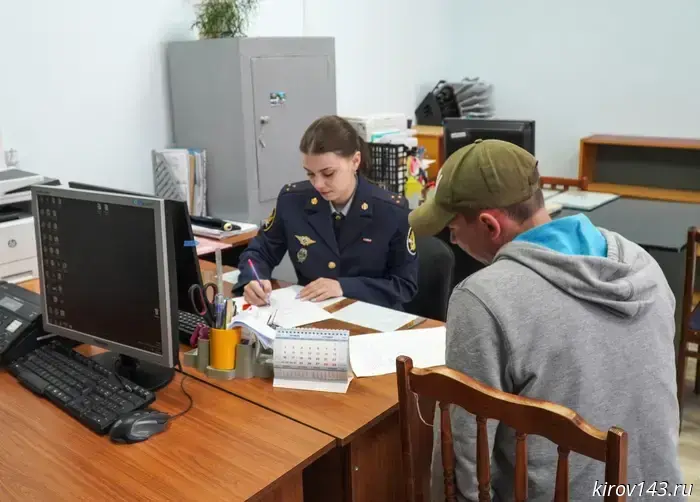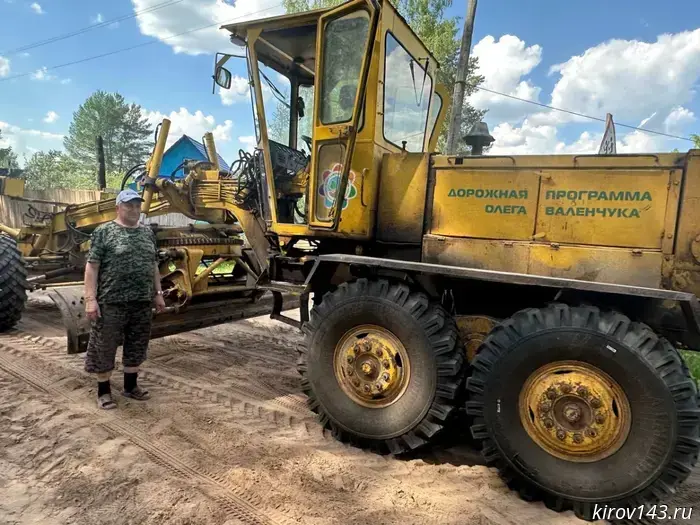
A chance for a fix
On January 1, 2024, Federal Law No. 10-FZ dated 02/06/2023 "On Probation in the Russian Federation" came into force in Russia, which is designed to help those released from penal colonies and those in difficult situations.
– Natalia Nikolaevna, the probation law has been implemented in Russia for more than a year. What is a probation institution?
Probation is a set of measures taken by bodies and organizations within their competence, including institutions of the penal correction system, to provide comprehensive assistance to convicts without isolation from society and to persons released from correctional institutions and correctional centers who find themselves in a difficult life situation.
Probation is implemented in three areas: penitentiary – in relation to those sentenced to imprisonment or forced labor, executive – in relation to convicts registered with penal enforcement inspections and post-penitentiary – in relation to persons released from correctional institutions and correctional centers.
The objectives of probation are to correct the social behavior of the persons to whom it applies, to assist them in various areas of life and to prevent them from committing new crimes. Since 2024, executive and penitentiary probation has been applied, and since 2025, the provisions of post-penitentiary probation have been implemented.
– At the present stage, the penitentiary system is solving serious tasks of re-socializing citizens who have violated the law. Is there any mutual understanding with state and municipal authorities, public and religious associations?
Our main task is to bring those who have stumbled back into society and help them in various areas of life. These are issues of restoring social ties, the demand for professional skills and employment, providing a place of residence, obtaining education, exercising the right to social services, and receiving medical, psychological, and legal assistance in accordance with the law. In addition to the institutions of the penal system, the subjects of probation are federal executive authorities, state authorities of the Kirov region, employment services and social service organizations. It provides for the possibility of involving local governments, commercial and non-profit organizations, including religious ones, public associations, and non-governmental social service organizations in the implementation of probation activities on the basis of agreements concluded with probation subjects. Agreements have been concluded at the regional level with the Ministry of Education, the Ministry of Social Development, the Ministry of Health, the Department of Employment, the Vyatka Metropolia of the Russian Orthodox Church, the Kirov Regional state-owned social service institution "Kirov Integrated Social Center for Assistance to Persons without a fixed place of residence and Occupation" and other organizations.
– Can convicts ask any question that arises in the course of their life, or is the list of types of assistance provided limited? Are there any cases when convicted persons are denied assistance?
I would like to note that the provision of assistance is based on the principles of a declarative nature and an individual approach to determining the forms and types of assistance depending on the need. Citizens can address an unlimited range of issues that require assistance in their resolution. This includes, for example, assistance in finding employment, restoring lost documents, and at the same time advising on social and legal issues. Thus, the convict, who is a combat veteran and has state awards, indicated in the questionnaire that he does not maintain social ties. During a personal conversation, the convict informed the social worker of the correctional institution that his parents had died, he had no wife or children, but he had a sister and a nephew with whom he had lost touch. In a conversation with an employee, the convict expressed his desire to find relatives. The convict did not have information about the exact address of the relatives' place of residence, he only remembered the city, last name, first name, patronymic of his sister and nephew, and their dates of birth. Inquiries sent to the address bureau of the city of Glazov in the Udmurt Republic and to the internal affairs bodies did not bring positive results in the search for his sister and nephew. The convict is familiar with the answers he received, but he strongly asked to continue searching for his relatives. According to the convict, he needed the support of his relatives. In order to promptly solve the problem of restoring socially useful ties of the convict, the correctional colony staff decided to continue the search for his sister and nephew. The search yielded a positive result. The convict received a letter from his sister and the possibility of subsequent correspondence with his family.
Depending on individual needs, individuals will be able to receive assistance in restoring and forming social ties, counseling on social and legal issues, psychological assistance, assistance in obtaining documents necessary to exercise their rights, employment, general education, secondary vocational education, vocational training, advanced training, unemployment benefits, medical care. assistance, social services and other assistance. However, I would like to note that the decision to provide assistance or to refuse to provide it is made only after assessing the individual need of a person in a difficult life situation. The assessment is carried out in order to confirm information indicating the presence or absence of need in the person who applied for assistance.
– What results have been achieved as a result of the application of the probation law?
By the end of 2024, 290 convicts, including 7 minors, applied for assistance in the framework of executive probation. The decision on the expediency of using probation was made in respect of 262 persons. The largest number of convicts applied for employment assistance – 63 people, 46 convicts indicated the need for social assistance and obtaining documents necessary for the realization of their rights, 37 – for psychological assistance. In addition, the convicts applied for counseling on social and legal issues – 26, assistance in education – 22, unemployment benefits – 12, medical assistance – 7, provision of a temporary place of residence and state social assistance on the basis of a social contract – one at a time, and other assistance – 9.
During the 4 months of 2025, employees of the penal enforcement inspectorate of the Kirov region implemented 102 individual programs of re-socialization, social adaptation, and social rehabilitation of persons in various categories of need. The most striking examples of assistance to convicts in solving difficult life situations are: receiving state social assistance on the basis of a social contract in accordance with the legislation of the Russian Federation. The social contract for the provision of monthly state social assistance in the amount of 14,991 rubles for six months includes expenses for basic necessities (food, clothing, shoes for children, household goods, sanitary and hygienic supplies, etc.). Two convicts who were left without a permanent place of residence, in cooperation with the staff of the integrated center for social The residents of the Sovetsky and Yaransky districts were placed in the Center for Social Adaptation in a temporary place of residence.
During the implementation of the Probation Law, 50 convicts were employed. More than 70 people received urgent social assistance in the form of things, basic necessities and food packages.
But the most important result is the refusal to commit illegal actions by citizens who have a difficult life situation because it has been resolved.
– A probation center was opened in Kirov this year. Tell us about its functioning.
Probation centers are established on the basis of non-profit organizations. In our region, on the basis of the Center for Social Adaptation. Institutions subordinate to the Federal Penitentiary Service cooperate with this organization on the basis of an agreement. The Probation Center has excellent living conditions for those who need a place to stay temporarily. The cozy, spacious rooms, fully equipped with furniture and household appliances, can accommodate 10 people. The probation center allows solving issues related, first of all, to the possibility of temporary residence of persons released from correctional institutions or correctional centers that do not have a place of residence. They can be provided with a separate bed with a set of bedding, a minimum necessary range of social services, meals, and registration of a citizen at the place of stay. Also, depending on their needs, they can be assisted in finding employment, obtaining documents necessary to exercise their rights, medical care, education, restoring or strengthening family and social ties, receiving psychological and other assistance. The probation center becomes for many the first step towards a new life, helping to overcome the difficulties that people face after their release.
Другие Новости Кирова (НЗК)
 The next season of Oleg Valenchuk's road program has started in the Kirov region.
On May 28, the grader started working in the Kirovo-Chepetsk direction.
The next season of Oleg Valenchuk's road program has started in the Kirov region.
On May 28, the grader started working in the Kirovo-Chepetsk direction.
 Libra will get what they expect, and Sagittarius will talk all day.
Astrologers told us how the first day off of the week will be for all zodiac signs.
Libra will get what they expect, and Sagittarius will talk all day.
Astrologers told us how the first day off of the week will be for all zodiac signs.
A chance for a fix
Natalia Cherepanova, Deputy Head of the Federal Penitentiary Service of Russia for the Kirov Region, Colonel of the Internal Service, told about how the provisions of the Probation Law are implemented in the Kirov region, and what kind of assistance former convicts in need of social support receive.
